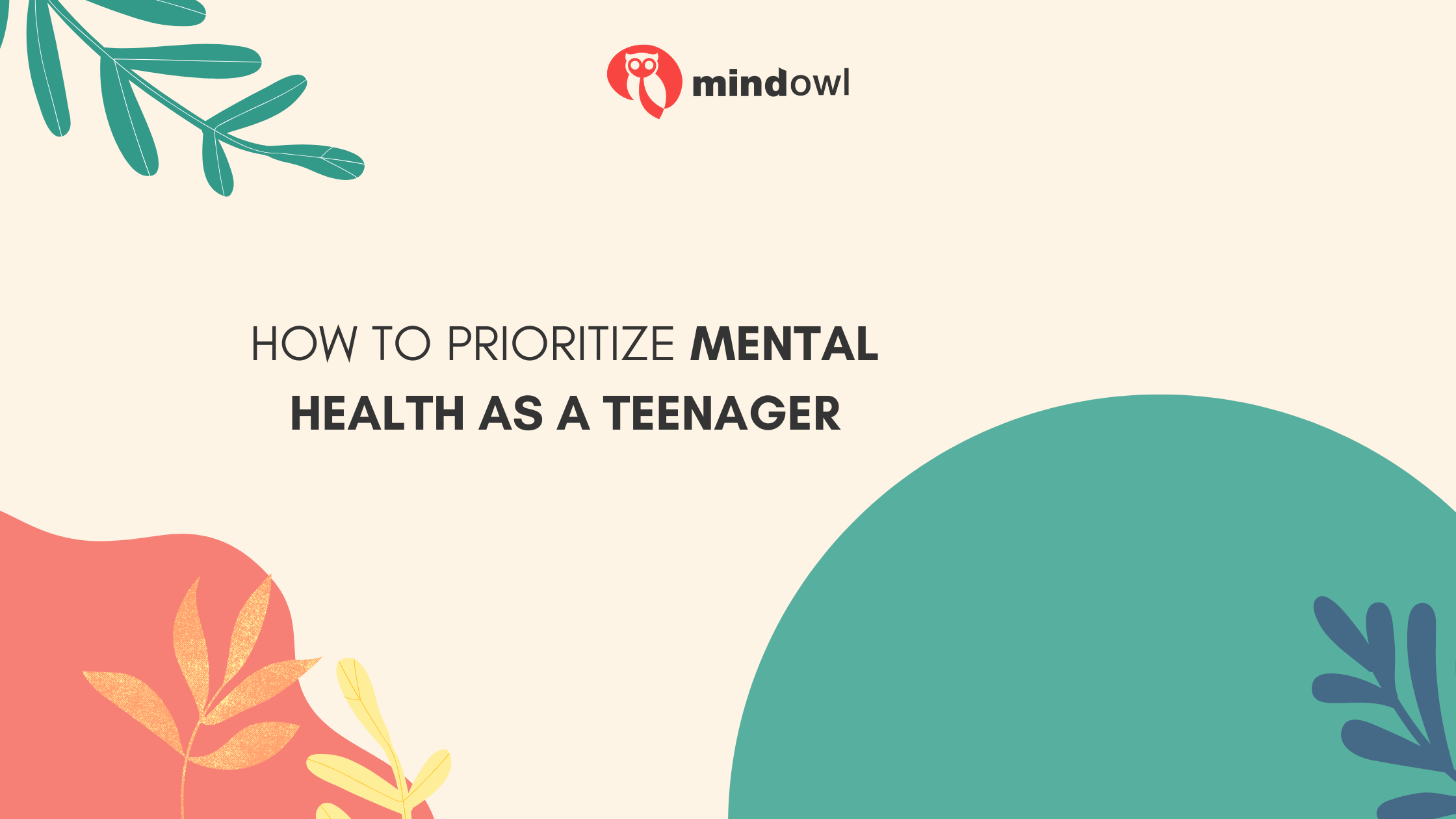
Navigating the teenage years can feel like riding an emotional rollercoaster. These are formative years filled with growth, discovery, and sometimes, confusion. Amidst all this change, mental health often takes a back seat. However, it is crucial to prioritize mental health during adolescence, as these years lay the foundation for future well-being. In this blog post, we’ll explore the importance of mental health for teenagers and offer practical advice on how to prioritize it.
Understanding Teenage Mental Health
Teenagers face a myriad of challenges and stressors, ranging from academic pressure to social dynamics. These factors can significantly impact mental health. Understanding these challenges is the first step towards managing them effectively. Common stressors include school workload, peer relationships, and family expectations. Additionally, hormonal changes and the quest for self-identity can add to the emotional turmoil.
Academic Pressure
The pressure to perform well academically is a significant stressor for many teenagers. Exams, homework, and the looming prospect of college can create a high-stress environment. This pressure can lead to anxiety and burnout if not managed properly.
Peer Relationships
Social relationships play a pivotal role in a teenager’s life. The desire to fit in and be accepted can lead to stress and anxiety. Negative experiences like bullying or exclusion can have severe impacts on mental health.
Family Expectations
Family expectations can sometimes feel like a heavy burden. The pressure to meet parental expectations in academics, sports, or other areas can cause stress and anxiety. Open communication with family members can help alleviate some of this pressure.
Signs and Symptoms of Poor Mental Health
Recognizing the signs and symptoms of poor mental health is crucial. Common indicators include persistent sadness, anxiety, and changes in behavior. It’s essential to be aware of these signs to seek help promptly.
Depression
Depression is more than just feeling sad. It can manifest as a lack of interest in activities once enjoyed, changes in appetite, and difficulty concentrating. If these symptoms persist, it’s essential to seek professional help.
Anxiety
Anxiety can manifest as excessive worrying, restlessness, and physical symptoms like headaches or stomachaches. It can interfere with daily activities and overall well-being.
Behavioral Changes
Significant changes in behavior, such as withdrawing from social activities, changes in sleeping patterns, or sudden mood swings, can indicate poor mental health. It’s essential to address these changes early on.
The Impact of Technology and Social Media
Technology and social media are double-edged swords. While they offer numerous benefits, they can also contribute to mental health issues. Understanding their impact can help manage their use more effectively.
Positive Effects
Technology and social media can provide platforms for self-expression and connection. They offer opportunities to learn new skills, connect with like-minded individuals, and access mental health resources.
Negative Effects
On the flip side, excessive use of social media can lead to feelings of inadequacy and anxiety. The constant comparison to others and the pressure to maintain a perfect online persona can be detrimental to mental health.
Balance Is Key
Finding a balance is crucial. Limiting screen time and engaging in offline activities can help mitigate the negative effects of technology and social media.
Strategies for Prioritizing Mental Health
Prioritizing mental health requires intentional effort. Here are some practical strategies to help teenagers take charge of their mental well-being.
Self-Care Practices
Self-care is not a luxury; it’s a necessity. Simple practices like regular exercise, healthy eating, and adequate sleep can significantly impact mental health. Engaging in hobbies and activities that bring joy can also contribute to overall well-being.
Seeking Support
It’s essential to seek support when needed. Talking to a trusted friend or family member can provide much-needed relief. Professional help, such as therapy or counseling, can offer valuable tools and strategies for managing mental health.
Outpatient Programs
For those facing significant mental health challenges, outpatient programs can provide structured support. Moreover, adolescent intensive outpatient programs offer therapy, counseling, and other resources to help individuals manage their mental health effectively. That way, they can continue their daily routine while receiving necessary support.
Breaking the Stigma
The stigma surrounding mental health can prevent teenagers from seeking help. It’s crucial to break this stigma by fostering open conversations and normalizing mental health struggles.
Open Conversations
Encouraging open conversations about mental health can create a supportive environment. Talking about mental health openly can help dispel myths and reduce stigma.
Normalizing Mental Health Struggles
Normalizing mental health struggles can make it easier for teenagers to seek help. It’s essential to remember that it’s okay not to be okay, and seeking help is a sign of strength, not weakness.
Role of Schools and Communities
Schools and communities play a vital role in breaking the stigma. Implementing mental health education and support programs can create a more inclusive and supportive environment.

Prioritizing mental health as a teenager is crucial for long-term well-being. By understanding the challenges, recognizing the signs of poor mental health, and implementing practical strategies, teenagers can take charge of their mental health. Breaking the stigma and seeking support are vital steps towards a healthier and happier life. Remember, it’s okay to seek help, and numerous resources are available to support you on this journey.
MindOwl Founder – My own struggles in life have led me to this path of understanding the human condition. I graduated with a bachelor’s degree in philosophy before completing a master’s degree in psychology at Regent’s University London. I then completed a postgraduate diploma in philosophical counselling before being trained in ACT (Acceptance and commitment therapy).
I’ve spent the last eight years studying the encounter of meditative practices with modern psychology.

